The Israeli poultry industry is a significant player in the global poultry trade. The poultry industry in Israel constitutes about 19% of the agricultural contribution in the country. This is the largest industry in the field of animals in Israeli agriculture. The industry has about 4,000 active growers in family farms and kibbutzim.
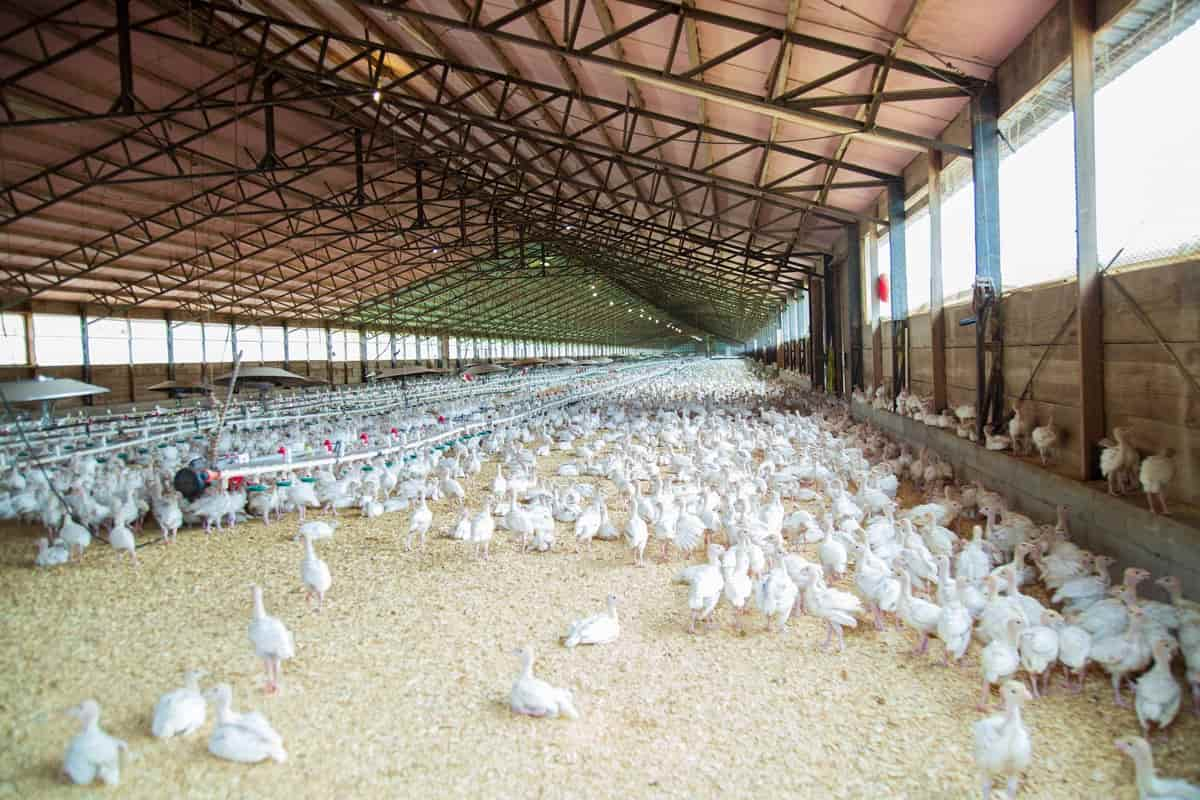
The main breeding branches in the industry are broiler meat, turkey meat, edible eggs, and heavy and light breeding branches. Poultry farming in Israel is a vital industry contributing significantly to the country’s economy. The benefits of this farming include producing high-quality poultry products, which are exported to many countries worldwide.
Poultry farming in Israel
Types of poultry farming in Israel
There are three main types of poultry farming in Israel: egg production, broiler farming, and turkey farming.
- In egg production, chickens are kept in large cages or barns and fed a diet of grains, legumes, and insects.
- In broiler farming, chickens are raised in large sheds and feed on a mix of grains and meat. Broilers account for the vast majority of chicken produced in Israel, as they are the most productive type of bird.
- Turkeys are the common poultry type raised in Israel and raised for their meat.
Poultry egg farming in Israel
Israel is one of the world’s leading egg producers. The country has over 400 farms producing about 2 million laying hens yearly. Egg production in Israel has been rising for the past few years as consumers have become increasingly interested in organic and sustainable foods. Israeli egg farmers work with several breeds of chickens, including Leghorn, Rhode Island Red, and Royal Blue British Bantam.
They also raise turkeys and ducks. Chickens are fed corn, soybeans, wheat, and other grains. The eggs produced in Israel are sold domestically and exported to many countries worldwide. Israeli eggs are particularly popular in Europe due to their high quality and sustainable farming practices.
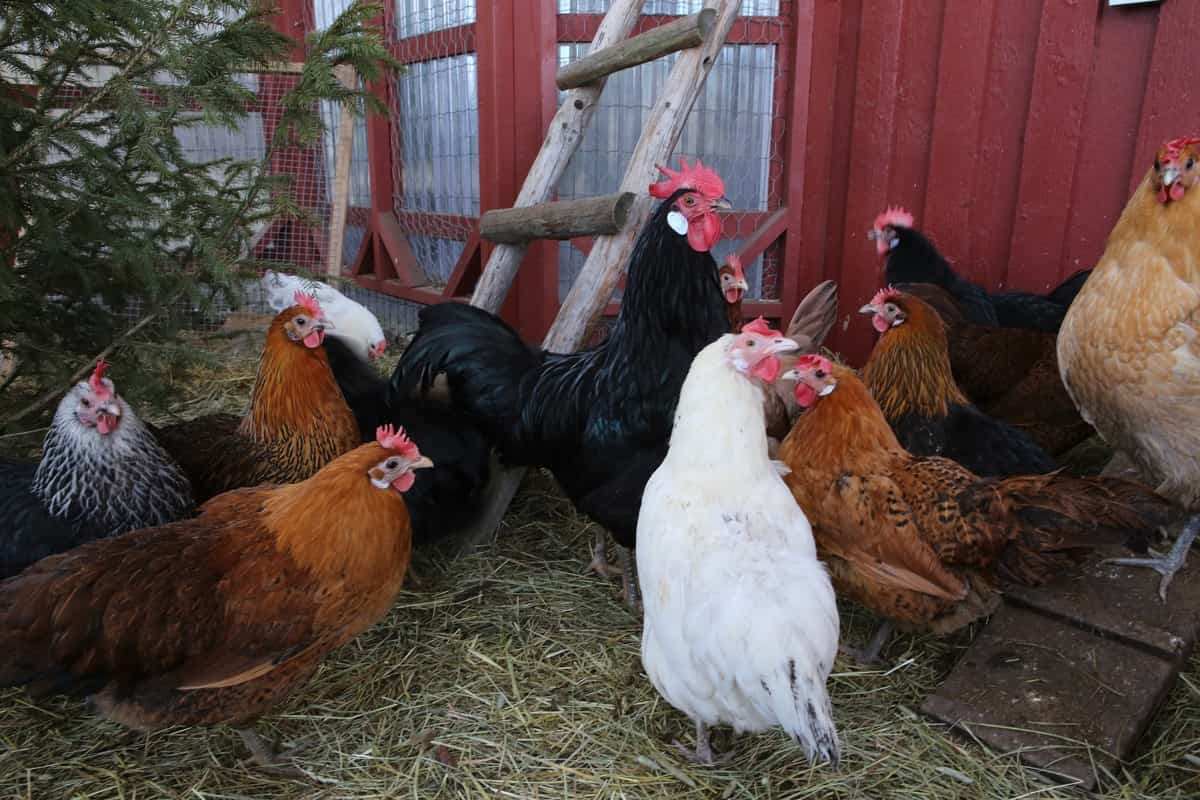
Backyard chicken farming in Israel
Israel is one of the few countries where backyard chicken farming is legal and common. As a result, backyard chicken farming in Israel is often seen as a way to improve food security for the average Israeli family and provide them with high-quality eggs and meat. Chickens are not only considered a staple food in many cultures around the world, but they are also a great source of income for many Israelis who wish to keep their flock.
Most Israelis who keep chickens do so either because they cannot access fresh organic produce or want to supplement their household diet with eggs and meat. There are two main types of backyard chicken farming in Israel: small-scale farming, with less than 20 birds per property, and large-scale farming, with more than 200 birds per property.
Small-scale farmers usually have less difficulty obtaining permits from local authorities, while large-scale farmers tend to face more opposition from neighbors concerned about noise and odor. Small-scale farmers typically raise pullets (chicks) until they are 12 weeks old, ready to be sold as eggs or meat. Large-scale farmers usually keep laying hens and roosters, allowing them to breed and produce chicks throughout the year.
Poultry farming areas in Israel
Poultry farming is an important sector of the Israeli economy and employs over 35,000 people. It contributes around $1 billion to the Israeli economy each year. Israel’s main poultry production areas are the Negev, Galilee, and Trans-Jordan. The Negev is the country’s largest poultry producer, with over half of all chicken production in Israel taking place here.
Poultry farming in Galilee is also significant, with around 15% of all chicken produced in Israel coming from this region. Production in Trans-Jordan is relatively small but is growing rapidly due to increased demand from Arab countries.
Feeding management for poultry farming in Israel
- Feeding poultry in Israel is a popular and profitable alternative to farming livestock. In addition, poultry is less demanding in feed, water, and space than livestock, making it a good choice for smaller farms and urban areas.
- Poultry farmers in Israel mostly grow chickens and turkeys. Chickens are the common poultry type raised in Israel, accounting for about two-thirds of the total output. However, turkeys are also raising in popularity due to their high meat yields.
- The main feed types used for poultry are grain, hay, green vegetables, and molasses. Hay is the most important component of a poultry diet because it helps keep the birds healthy and prevents them from becoming overweight or sick. Green vegetables such as lettuce or kale can be added to the mix to provide additional nutrients and flavor.
- To prevent mycoplasma infection in chickens, farmers often give them antibiotics before they hatch. Mycoplasma infection can cause respiratory problems in chickens and make it difficult for them to lay eggs.
Requirements for poultry farming in Israel
The main requirements for poultry farming in Israel are good to feed and water supplies, access to sunlight and ventilation, enough space for the birds to roam, and plenty of manure to fertilize the crops. Farmers also need to pay close attention to predator control since the birds are susceptible to predation by foxes, hawks, and other predators.
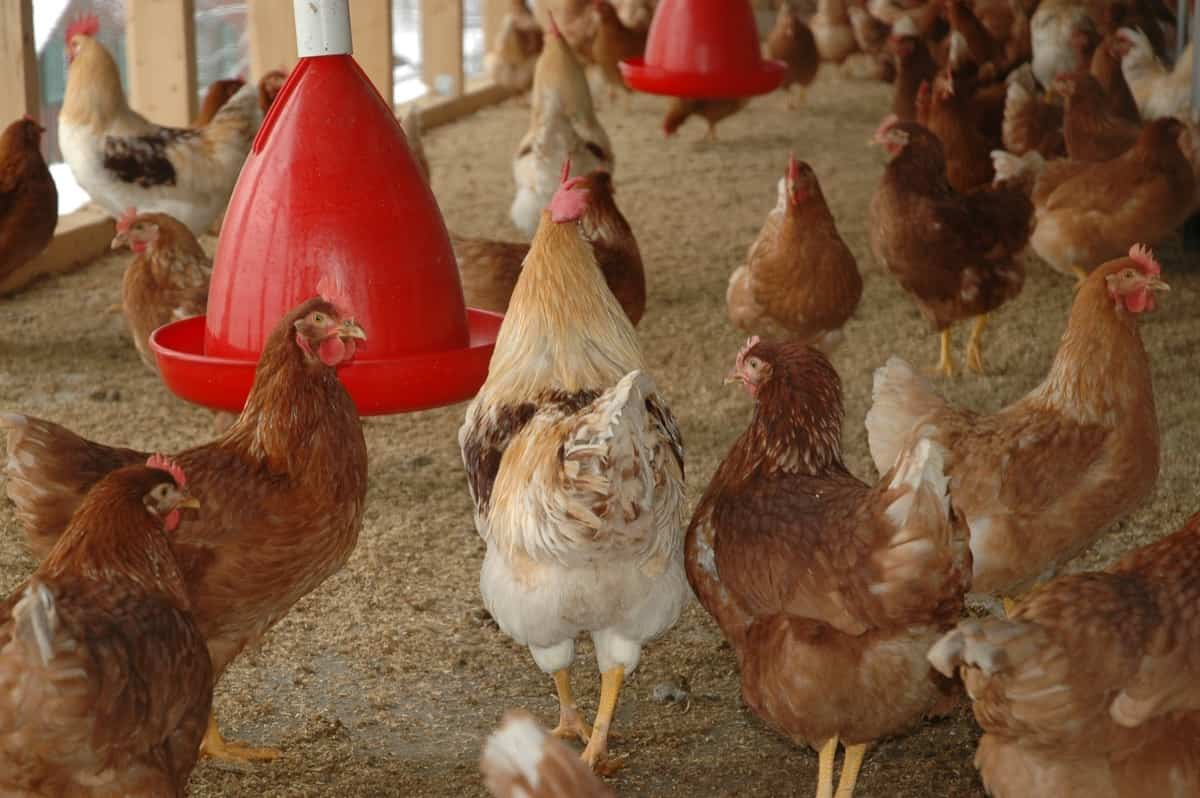
Small-scale poultry farming in Israel
There are over 150 small-scale poultry farming units in Israel. These farms raise poultry, including ducks, geese, turkeys, and layers. Most of these farms are family operated and produce eggs and meat for the local market.
Poultry breeds available in Israel
There are a variety of poultry breeds available in Israel, each with its unique characteristics and abilities. These include the Araucana, known for its large size and meat quality; the White Leghorn, a hardy and productive bird; the Rhode Island Red, which is highly egg-laying; and the Cornish Game Hen, which is well-known for its flavor and meat quality.
Tips on raising poultry in Israel
- To keep poultry healthy and prevent disease, farms in Israel use various methods, including vaccination against bird flu, feeding them with organic feed, and providing access to fresh water and pasture.
- Chickens also receive attention during their slaughtering process – they are killed quickly by cutting their throats with a sharp blade rather than allowing them to suffer prolonged pain. This method results in high-quality meat that is free from blood contamination.
Poultry production methods in Israel
- Israel is one of the world’s leading chicken producers, with a production capacity of more than 8 million birds per year. The country has a long history of poultry farming, dating back to the early 1800s. Today, Israel is home to some of the world’s most advanced poultry production methods.
- The country’s dominant poultry breed is the Araucana, which is famous for its large size and colorful plumage. Other popular breeds include the White Leghorn and the Rhode Island Red. Israel is also well known for its broilers (young chickens raised for meat), which are raised in multi-floor cages that allow them to move freely.
- Israel’s main chicken production regions are central and southern Israel and areas near the Egyptian border. The country’s major feed suppliers are Egypt and Jordan, although Israel imports feed from several other countries.
- Israel has a well-developed infrastructure for poultry production, including farms that grow corn to feed chickens, processing plants that make products like chicken meal and feathers into products like insulation and carpets, and slaughterhouses that handle all types of chickens (farm-raised or wild).
- Poultry farming in Israel takes various forms, including free-range, intensive confinement, and broiler production. Free-range poultry farms allow chickens to roam outdoors but are limited to certain designated areas. Intensive confinement systems keep chickens indoors, but they have access to enough food and water to satisfy their needs. Finally, broiler producers raise chickens for their meat rather than their eggs or feathers.
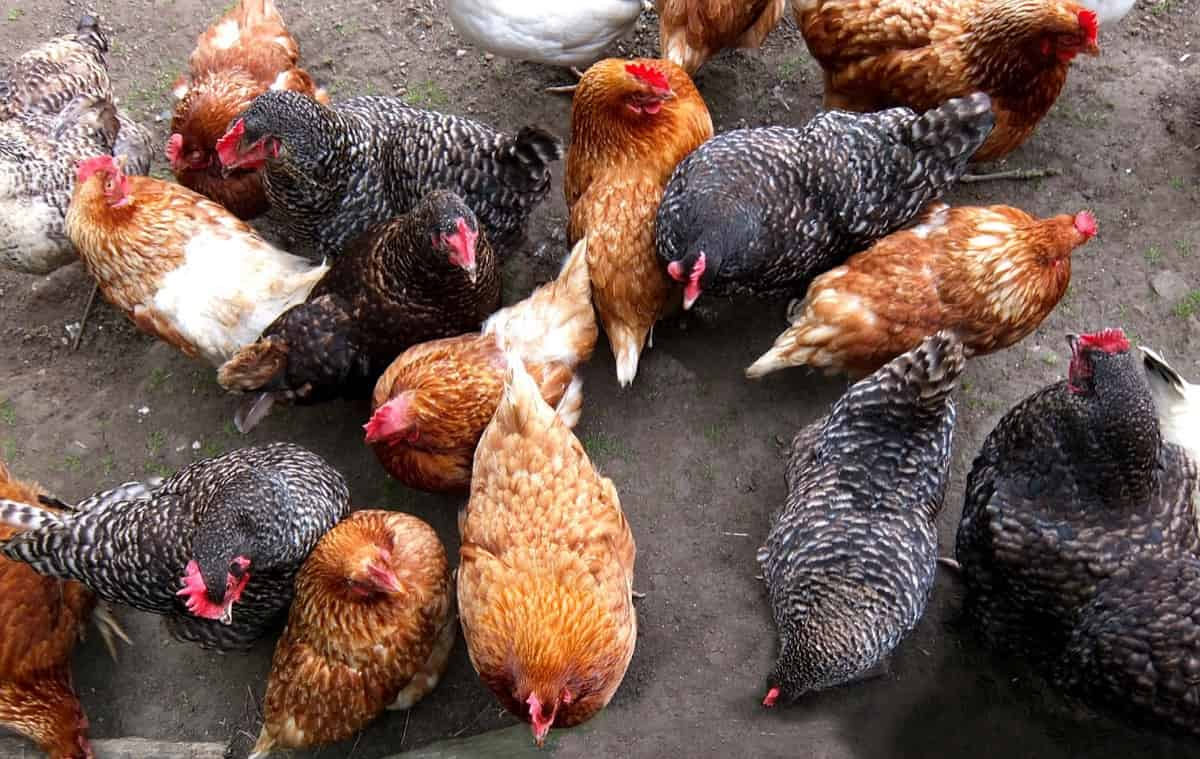
Is poultry farming profitable in Israel?
In Israel, poultry farming is a booming industry. The country has a long history of raising poultry; today, many farmers continue to do so because it is highly profitable. Chickens are the most common poultry type raised in Israel, but there are also turkeys, ducks, geese, and pigeons.
Steps to starting your poultry farm business plan in Israel
- Research the poultry farming industry in Israel. First, consult with an agricultural extension agent to get started.
- Get a business plan from an expert.
- Start your poultry farm by acquiring the necessary permits and licenses from the relevant authorities.
- Build a healthy and productive poultry flock using different methods and techniques.
- Market your poultry products to local and international buyers.
- Keep a close watch on costs and expenses associated with running your poultry farm and make necessary strategic adjustments.
- Stay ahead by innovating and improving your product offerings.
- Protect your investment by implementing sound business practices and risk management strategies.
- Celebrate success whenever possible since it takes hard work, dedication, and luck to succeed in this industry.
Poultry farm set-up cost in Israel
There are a few different ways to start poultry farming in Israel. One way is to start with a backyard flock of chickens. Another option is to buy an established farm. The starting cost for setting up either type of farm can be anywhere from $10,000 to $25,000.
Care and management of poultry farm in Israel
There are many poultry farming businesses in Israel. It is one of the most important agricultural sectors in the country. The main types of poultry farming in Israel are broiler, turkey, and egg production. There are also a few duck farms in Israel. The average chicken farm in Israel has about 20,000 birds. Broiler chicken farming is the most common type of poultry farming in Israel.
This type of poultry farming involves raising chickens for their meat or eggs. Turkey and egg production are also common types of poultry farming in Israel. These two types of poultry farming involve raising turkeys and eggs for profit. Duck farms are also present in Israel but are much less common than chicken and turkey farms. Duck farms raise ducks for their meat or feathers.
Key rules to start poultry farming in Israel
- Poultry farms should be situated in an area with plenty of sunshine and decent drainage to avoid water-associated diseases such as avian cholera. Fairs and open spaces near major urban areas are not ideal because they lack adequate sunlight and airflow.
- To be eligible to farm poultry in Israel, you need a permit from the Ministry of Agriculture and Rural Development. The permit is free if you have at least one hectare of land available to farm poultry. You can also apply for a permit if you have an existing agricultural business that raises poultry.
- Poultry farming in Israel is very diverse. Some small farmers raise chickens only for their eggs or meat, while others raise chickens for both purposes. Finally, some large-scale farmers raise tens of thousands of birds.
- Ensure that your farm has a good building location. You don’t want sun or wind exposure on the farm, so choose an area in or near a city or urban area.
- Intensive poultry farming requires good management and much attention from the farmer. Ensure you have enough bird space, good feed and water supplies, and shelter from the weather. And finally, always remember that poultry farming is an agricultural business; like any other business, it needs good marketing and financial management to succeed.
- Purchase or lease land and build suitable housing for your birds. Select the breeds of poultry that will best suit the environment and your production goals. Determine feed requirements and start stocking supplies.
- Establish basic management procedures and protocols for feeding, watering, selecting mates, and disposing of dead birds.
- Develop marketing plans and launch an advertising campaign. Oversee daily operations and make necessary modifications as needed.
- Analyze financial data regularly to ensure that operations are profitable. Then, be prepared to weather any unforeseen challenges that may crop up along the way.
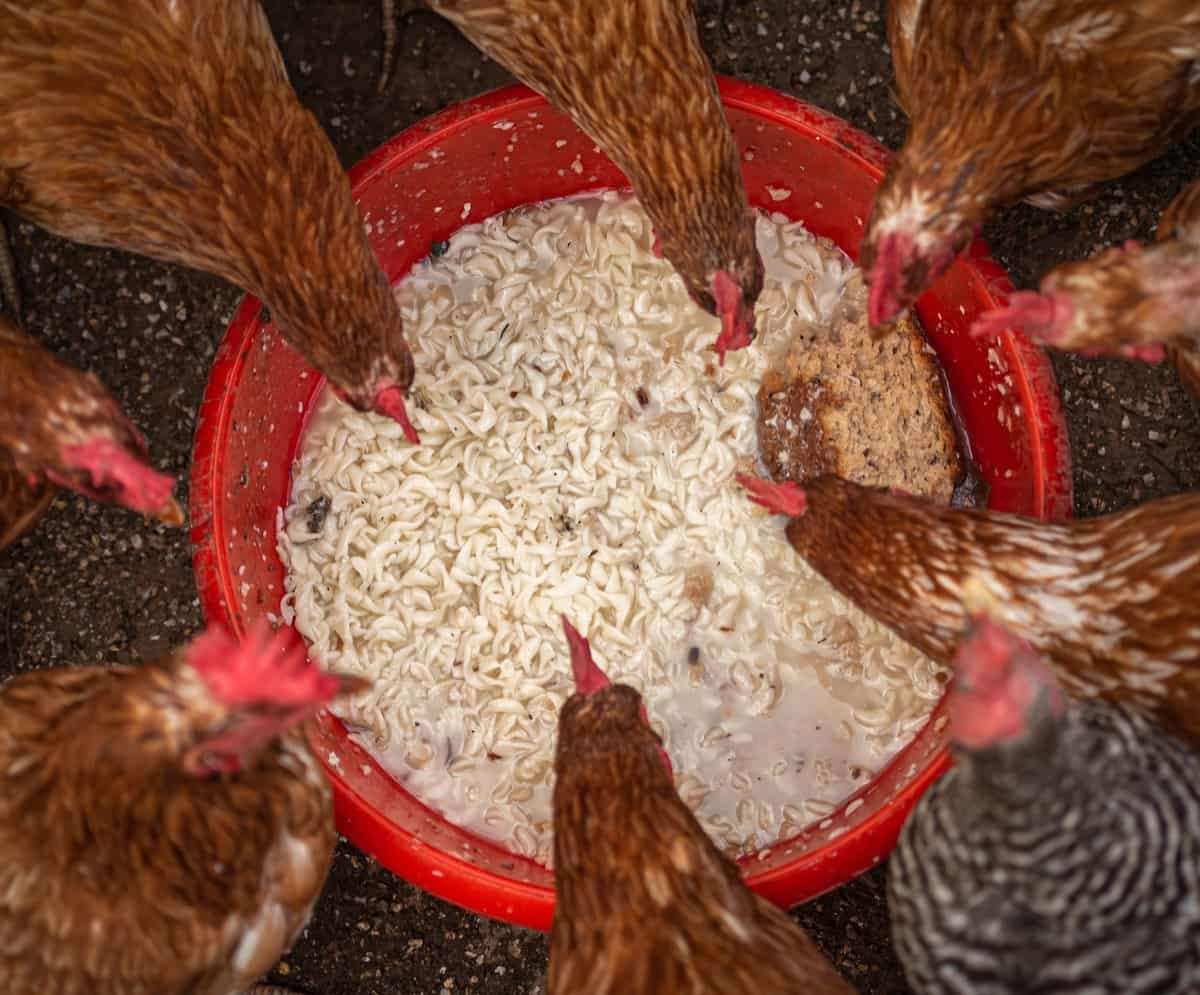
Good husbandry practices for Israel poultry farmers
Poultry farming in Israel is a growing industry, and good husbandry practices are essential for success. Israel has high humidity levels year-round, which is ideal for poultry production. However, the country faces certain challenges unique to its climate, including a lack of cold-weather storage facilities for chickens and turkeys.
Israel’s hot, dry summers can be very challenging for poultry farmers, who must keep their birds hydrated with plenty of water. Chickens and turkeys will drink more if they can access a pool or fountain. Farmers must also ensure their birds have enough shade to stay cool during hot weather episodes and access a dry area if rain is in the forecast.
Poultry farming loans and subsidies in Israel
Israel has a long history of poultry farming, dating back to the early 1900s. Today, Israel is one of the world’s leading poultry producers, with chicken raising accounting for more than half of all poultry production in the country. To help boost the industry, Israel offers several loans and subsidies, including production grants, feed subsidies, and preferential tariffs on imported inputs.
The Israeli government also offers marketing assistance to farmers, including developing marketplaces and training farmers in effective marketing strategies. These programs aim to increase demand for Israeli poultry products and raise profits for producers. In addition to financial assistance, Israel invests heavily in research and development programs for poultry farming technology. This helps keep pace with ever-changing agricultural trends and makes Israeli poultry products some of the most advanced in the world.
Poultry farming problems in Israel
Several problems occur on poultry farms in Israel. These problems include bird flu, avian malaria, salmonella, and other diseases. There have also been reports of birds escaping from the farms and attacking humans or other animals. In addition, the feed used on Israeli poultry farms is often contaminated with antibiotics and other chemicals, leading to health problems for the birds.
Poultry farming challenges in Israel
The Israeli poultry industry is one of the most important and diverse in the world. The country has a long history of poultry farming, dating back to biblical times. Israel is second only to China regarding the number of chicken farms. The main challenges facing the Israeli poultry industry are disease and climatic conditions. Diseases, specifically avian influenza (AI), can devastate flocks and lead to significant financial losses for farmers. Climate change is also challenging, as it can affect bird health and productivity.
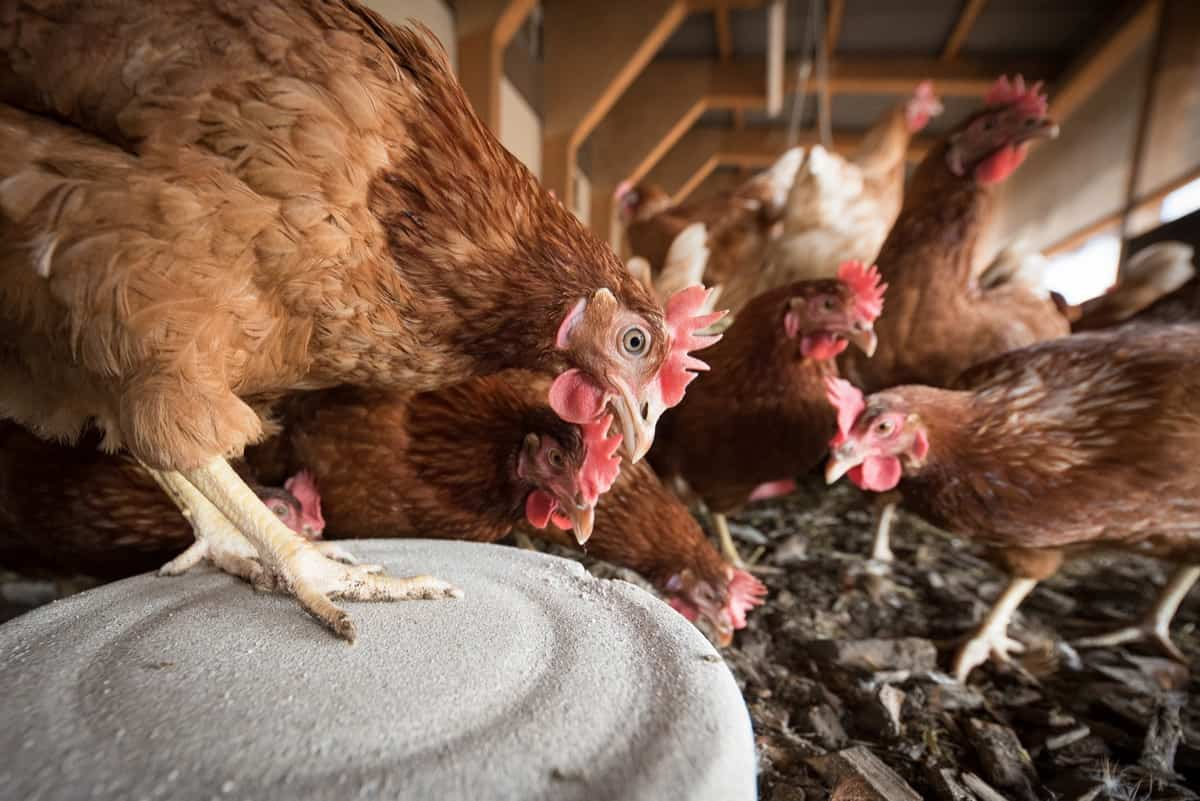
Despite these factors, Israel faces several challenges in terms of poultry farming. For instance, diseases are a major concern due to the proximity of ruminant and poultry populations. Furthermore, Israeli chicken farmers must contend with increasing feed prices and shortages of some types of feed additives. Water scarcity is becoming a bigger issue as Israel’s population grows, requiring more efficient usage of farmland and freshwater supplies.
Conclusion
Israel is one of the world’s leading poultry producers and exporters. Israel is one of the world’s top five egg producers and the sixth-largest chicken producer. In addition, Israeli poultry farmers are among the most efficient in producing high-quality eggs. As a result, poultry farming in Israel is a growing industry and a major contributor to the Israeli economy. The country has a long history of poultry production, and today there are over 1,000 chicken farms in Israel. Most of these farms are small-scale operations producing eggs, chickens, or turkeys.
- Types of Pesticides Used in Agriculture: A Beginner’s Guide
- Economical Aquaculture: A Guide to Low-Budget Fish Farming
- 15 Common Planting Errors That Can Doom Your Fruit Trees
- How to Make Houseplants Bushy: Effective Tips and Ideas
- Innovative Strategies for Boosting Coconut Pollination and Yield
- Pollination Strategies for Maximum Pumpkin Yield
- The Complete Guide to Chicken Fattening: Strategies for Maximum Growth
- Natural Solutions for Tulip Problems: 100% Effective Remedies for Leaf and Bulb-Related Issues
- Revolutionizing Citrus Preservation: Towards a Healthier, Greener Future
- Natural Solutions for Peony Leaf and Flower Problems: 100% Effective Remedies
- Maximizing Profits with Avocado Contract Farming in India: A Comprehensive Guide
- Natural Solutions for Hydrangea Problems: 100% Effective Remedies for Leaf and Flowers
- The Ultimate Guide to Choosing the Perfect Foliage Friend: Bringing Life Indoors
- From Sunlight to Sustainability: 15 Ways to Use Solar Technology in Agriculture
- The Ultimate Guide to Dong Tao Chicken: Exploring from History to Raising
- The Eco-Friendly Makeover: How to Convert Your Unused Swimming Pool into a Fish Pond
- Mastering the Art of Delaware Chicken Farming: Essentials for Healthy Backyard Flocks
- 20 Best Homemade Fertilizers for Money Plant: DIY Recipes and Application Methods
- How to Craft a Comprehensive Free-Range Chicken Farming Business Plan
- Brighten Your Flock: Raising Easter Egger Chickens for Beauty and Bounty
- How to Optimize Your Poultry Egg Farm Business Plan with These Strategies
- Subsidy for Spirulina Cultivation: How Indian Government Schemes Encouraging Spirulina Farmers
- Ultimate Guide to Raising Dominique Chickens: Breeding, Feeding, Egg-Production, and Care
- Mastering the Art of Raising Jersey Giant Chickens: Care, Feeding, and More
- Ultimate Guide to Raising Legbar Chickens: Breeding, Farming Practices, Diet, Egg-Production
- How to Raise Welsummer Chickens: A Comprehensive Guide for Beginners
- How to Protect Indoor Plants in Winter: A Comprehensive Guide
- Ultimate Guide to Grow Bag Gardening: Tips, Tricks, and Planting Ideas for Urban Gardeners
- Guide to Lotus Cultivation: How to Propagate, Plant, Grow, Care, Cost, and Profit
- Agriculture Drone Subsidy Scheme: Government Kisan Subsidy, License, and How to Apply Online
- Ultimate Guide to Raising Araucana Chickens: Breed Profile, Farming Economics, Diet, and Care
- Bringing Hydroponics to Classroom: Importance, Benefits of Learning for School Students
- Ultimate Guide to Raising Polish Chickens: Breed Profile, Farming Economics, Diet, and Care
- Ultimate Guide to Raising Australorp Chickens: Profile, Farming Economics, Egg Production, Diet, and Care
- Silkie Chicken Farming: Raising Practices, Varieties, Egg Production, Diet, and Care
- Sussex Chicken Farming: Raising Practices, Varieties, Egg Production, Diet and Care
Very much useful for poultry farms and farmers.
This is nice. Please I want to get constant notifications from you. Thank you.
Sincerely, the entire writeup is really educative even if you have been in the business…..there is always something to learn.
Hello dear friends am a new POULTRY farmer in Nigeria how can you help me to grow my business
I am starting a chicken feed and chicken farming business. I am from Indonesia and would like to receive guidance, assistance and business cooperation. The aim of our business is to enable the lower economic community to eat chicken and eggs. I am very happy if anyone is interested in cooperating with us.
Use full website.
Am happy with what you are doing to make work easier, and faster than it’s used before, I hope you are having more information about chicken, that would help me to prosper, thanks so much for your help with this knowledge.